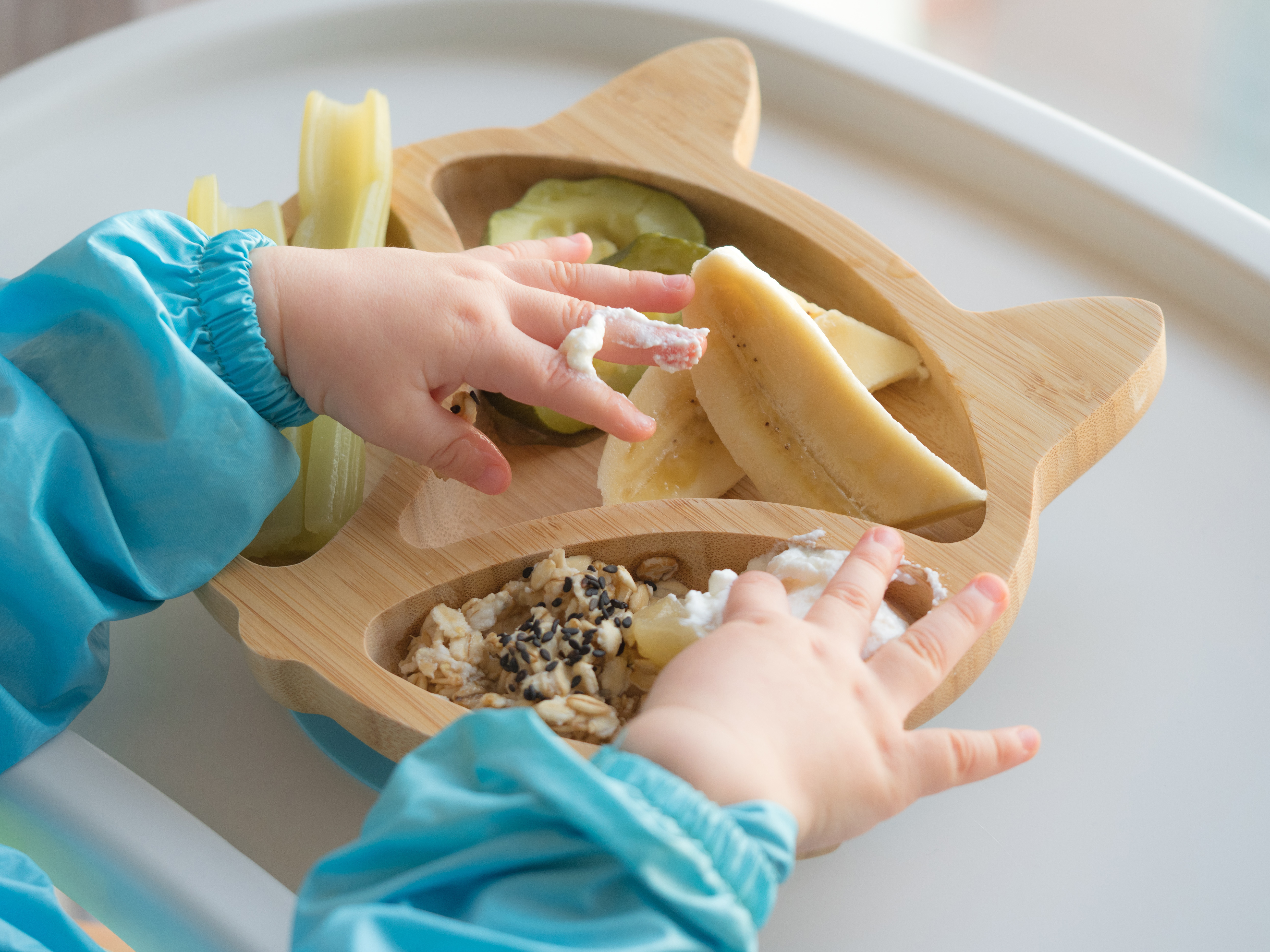Can A Baby Have A Vegan Diet?

As more people are converting to a vegan diet, many are also considering whether it’s appropriate for children. More specifically, some parents would like to introduce vegan meals to kids as young as one year old and older. There are benefits to having a vegan diet, one of which is the reduced risk of acquiring diseases. However, babies have sensitive stomachs, so it’s a significant move to have them eat purely vegan food once they’re ready for solids.
Before introducing your little one to a vegan diet, you must know your options, the possible risks involved, and what you could do to address them. This article will explain all those and more, so keep reading.
Vegan Options For Babies And Toddlers
Babies only need breast milk for nutrition for the first few months of life. If breast milk isn’t available, a doctor-approved baby formula like those from Serenity Kids should do well. But eventually, a baby will have to wean off breast milk or formula and move on to solid food.
You can introduce baby-friendly vegan snacks made with organic ingredients during this time. You can find snacks that dissolve instantly when in contact with saliva, such as veggie puffs, on myserenitykids.com. Other vegan food options safe for babies include:
- Tofu
- Leafy green vegetables like broccoli and kale
- Whole grains such as oatmeal and whole wheat pasta
- Beans
- Fruits
You could even continue breastfeeding your baby while they slowly transition to solid vegan food. Dieticians may recommend that you consider breastfeeding for an extended period because breast milk contains vital nutrients for a baby’s growth and is compatible with a vegan diet.

If you plan to introduce other types of milk, avoid plant-based options for your baby if they’re under 12 months old. Plant-based milk usually lacks protein, an essential nutrient for proper growth and development. In the meantime, continue feeding your baby breast milk or formula alongside vegan food. When they’re ready for alternative milk options, make it a point to always read the labels of almond, soy, and coconut milk products carefully for their safety.
Risks Of A Vegan Diet
Babies need high protein and fat intake in their diet, and you can best find these nutrients in non-vegan food like dairy products and meat. Hence, when you introduce a vegan diet to your baby, there’s a higher rate of deficiency risks. Some vegan options lack essential nutrients such as vitamin B12, vitamin D, omega-3, iron, calcium, and zinc. Iron, in particular, is crucial for 7 to 12-month-old babies because of their rapid growth rate at this age.
There is also the risk of a baby developing allergies to certain vegan food items. Soy is a common allergen that may affect your child up to adulthood if they’re allergic to it. Besides, a vegan diet may prevent you from discovering what your baby is allergic to because fish, meat, and eggs are considered non-vegan food. These three contain priority allergens that doctors recommend introducing to babies early to reduce the risk of allergy development.
In addition, the fruits and vegetables in vegan diets may provide too much fiber. Babies require a low fiber intake to avoid issues like bloating and cramps. Changes in bowel movement could also pose a problem, especially for younger babies. Thus, you may need to limit fiber-rich food for your child if they’re already starting on a vegan diet.
Ensure Proper Nutrition
Fat, protein, and carbohydrates are the three macronutrients all babies need for proper growth. It’s vital to provide babies with the essential nutrients their body requires, even on a vegan diet. Vitamin deficiency in kids can worsen as they grow older and may even become lethal.
Fortunately, many vegan food options are rich in protein, such as beans, peas, lentils, and tofu. Fresh fruit juice is a perfect source of carbohydrates and vitamin C. Meanwhile, your child can receive vitamins A, B6, B12, D, and folic acid from fortified cereals. Kale, flax, and chia seeds are excellent alternatives to seafood for omega-3, which contributes to cognitive development for babies.
Furthermore, you could give your baby a regular sunbath when they’re over six months old. Thirty minutes of early morning sun exposure without sunscreen can make do for the lack of vitamin D in their vegan diet. Make sure to do this before 10 am to avoid them getting sunburnt.
Consult The Experts
Before stocking up on vegan food for your baby, you must consult a pediatrician or, better yet, a pediatric dietician. Nutrition guidelines for adults aren’t the same for babies and toddlers, especially when going vegan. So, it’s crucial to provide a healthy diet for your child that’s appropriate for their age.
Most babies tend to be picky eaters, making it difficult for parents to introduce a vegan diet. A pediatrician might recommend you forgo vegan meals if your baby has feeding issues. A child with certain health conditions that hinder their eating ability may not benefit from a vegan diet.
However, you can slowly try introducing vegan options if your baby is eating well. Team up with a pediatrician and a nutritionist to plan a vegan diet in which your baby can receive the most vitamins and nutrients from their meals.
Conclusion
Vegan diets are generally safe for babies if you have a pediatrician or nutritionist’s guidance. Your baby can grow up with animal-free meals yet still be as strong and healthy as other babies who eat animal food products.






